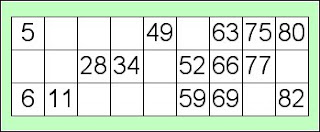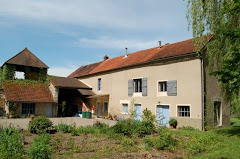 Although smoking is no longer allowed in French public places, the rest of the description fits the place well. It is located in an old, very small (wine)cellar, which is so low, that a bass player cannot stand his instrument upright. The photo actually shows the amount of people that fit in; one is hard pushed to squeeze more in. One night we went there, wisely combining the concert with having a meal out; we paid entrance fee and membership fee (€ 3.50 for a year) and went inside. The music was rather boring, and that is an understatement. We left the club during the break. A couple of weeks later we gave it a second try, because a “young, promising” guitarist was playing in the Crescent. After these two disappointing experiences we left the Crescent for what it was, although I keep an eye on their program. One never knows, maybe one day a good group might be playing there. The only thing which impressed me, was how the musicians handled the volume they were playing at. Firstly they played acoustically, or, in case of the guitar player, used the amplifier with moderation, and secondly, in case of e.g. the drummers, they managed to play in such a way that one was not blown away by the noise. That is certainly one of the minus points of most Dutch jazz venues; they play at a volume sufficient to bring down a stadium like Wembley, and than they wonder why so many of their fans have problems with their ears!
Although smoking is no longer allowed in French public places, the rest of the description fits the place well. It is located in an old, very small (wine)cellar, which is so low, that a bass player cannot stand his instrument upright. The photo actually shows the amount of people that fit in; one is hard pushed to squeeze more in. One night we went there, wisely combining the concert with having a meal out; we paid entrance fee and membership fee (€ 3.50 for a year) and went inside. The music was rather boring, and that is an understatement. We left the club during the break. A couple of weeks later we gave it a second try, because a “young, promising” guitarist was playing in the Crescent. After these two disappointing experiences we left the Crescent for what it was, although I keep an eye on their program. One never knows, maybe one day a good group might be playing there. The only thing which impressed me, was how the musicians handled the volume they were playing at. Firstly they played acoustically, or, in case of the guitar player, used the amplifier with moderation, and secondly, in case of e.g. the drummers, they managed to play in such a way that one was not blown away by the noise. That is certainly one of the minus points of most Dutch jazz venues; they play at a volume sufficient to bring down a stadium like Wembley, and than they wonder why so many of their fans have problems with their ears!The website of La Tuilerie de Chazelle






